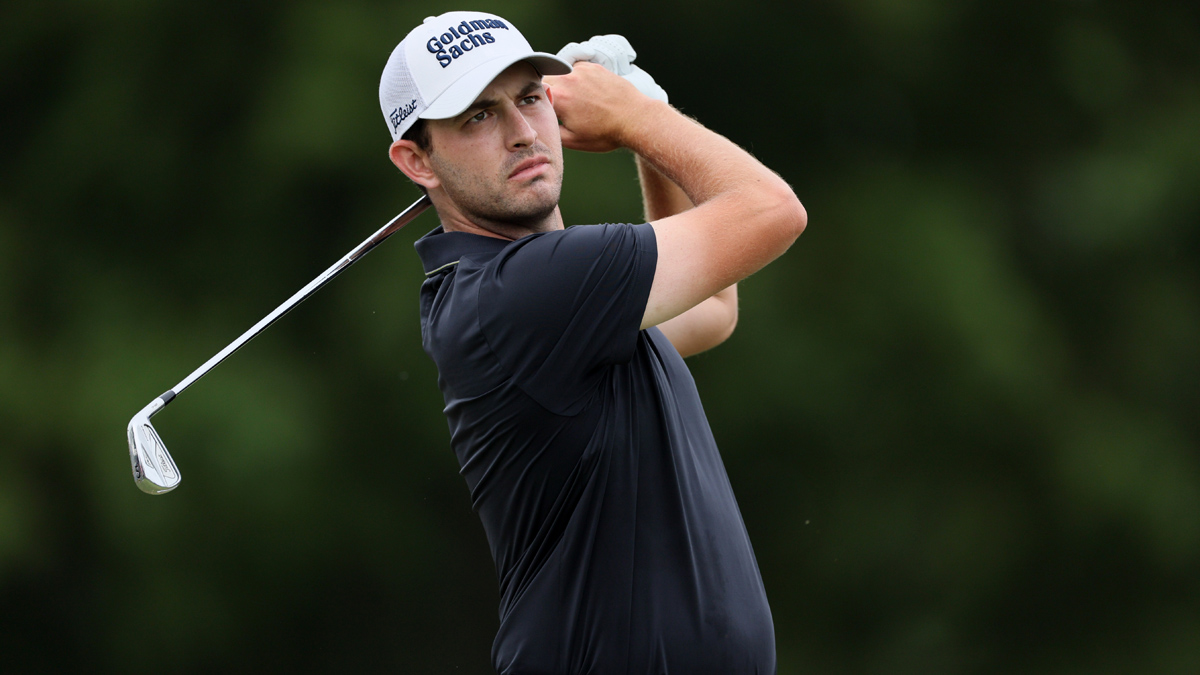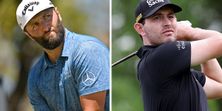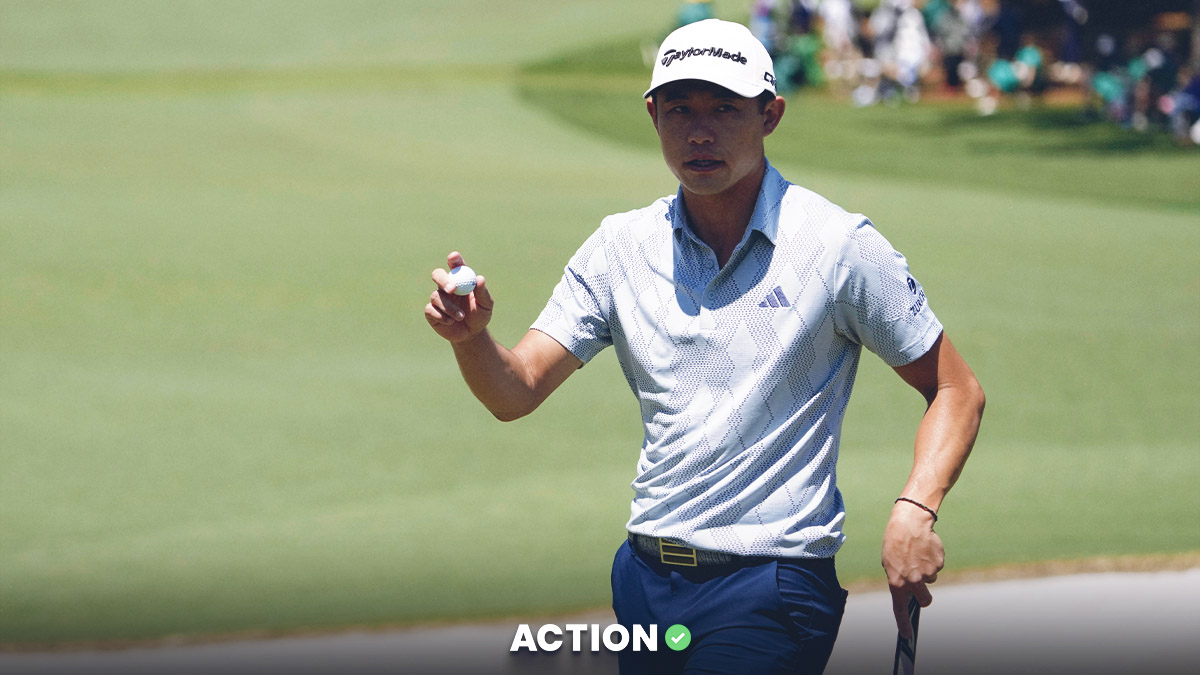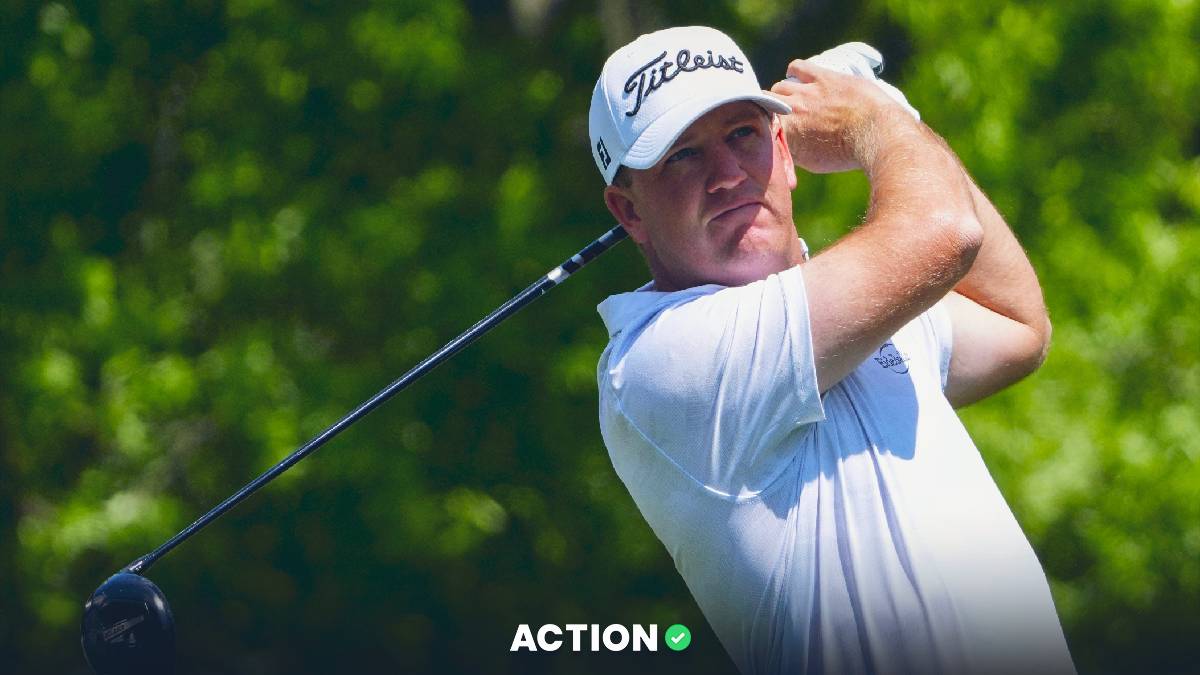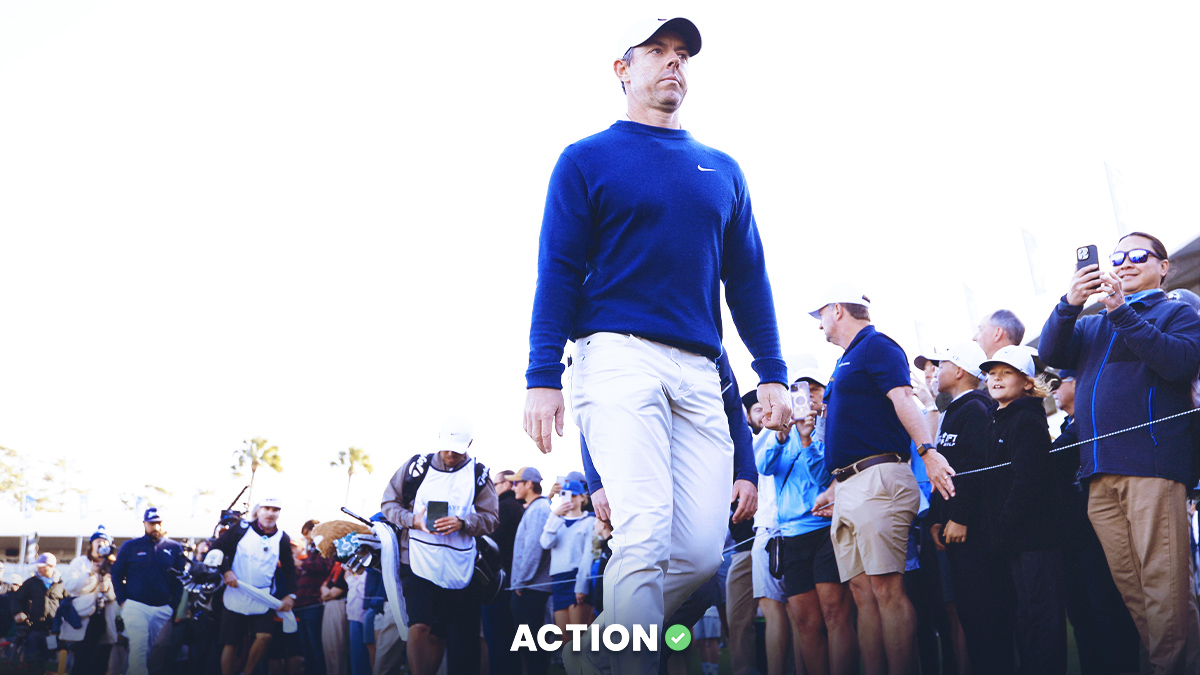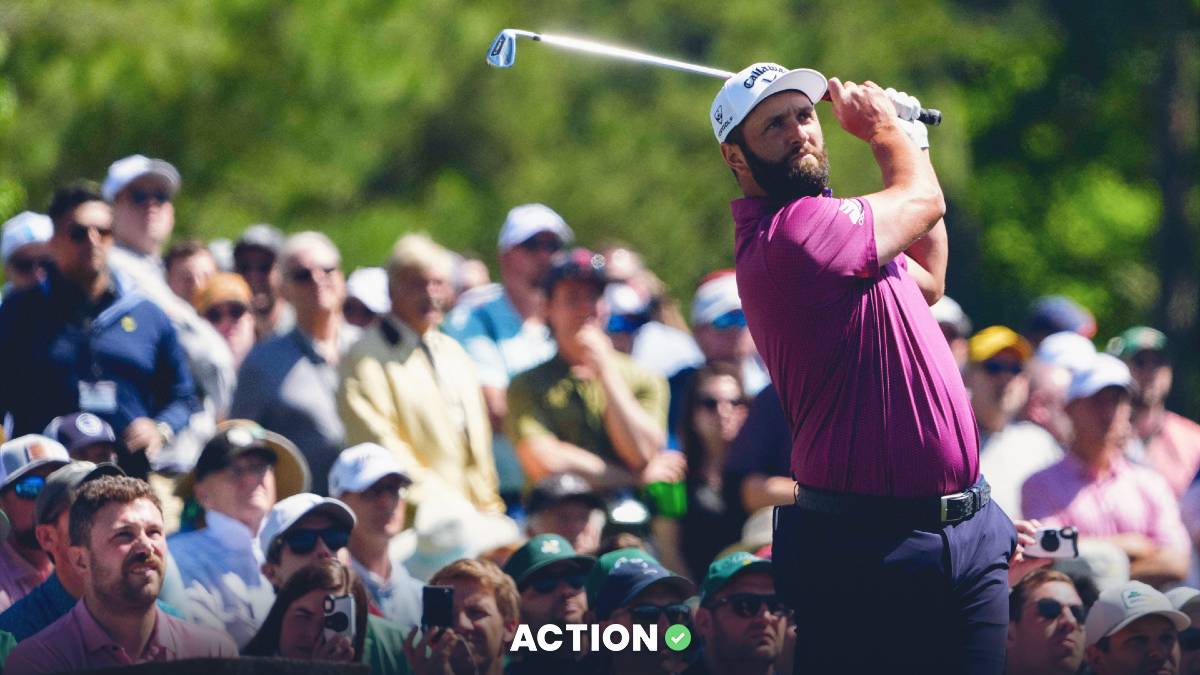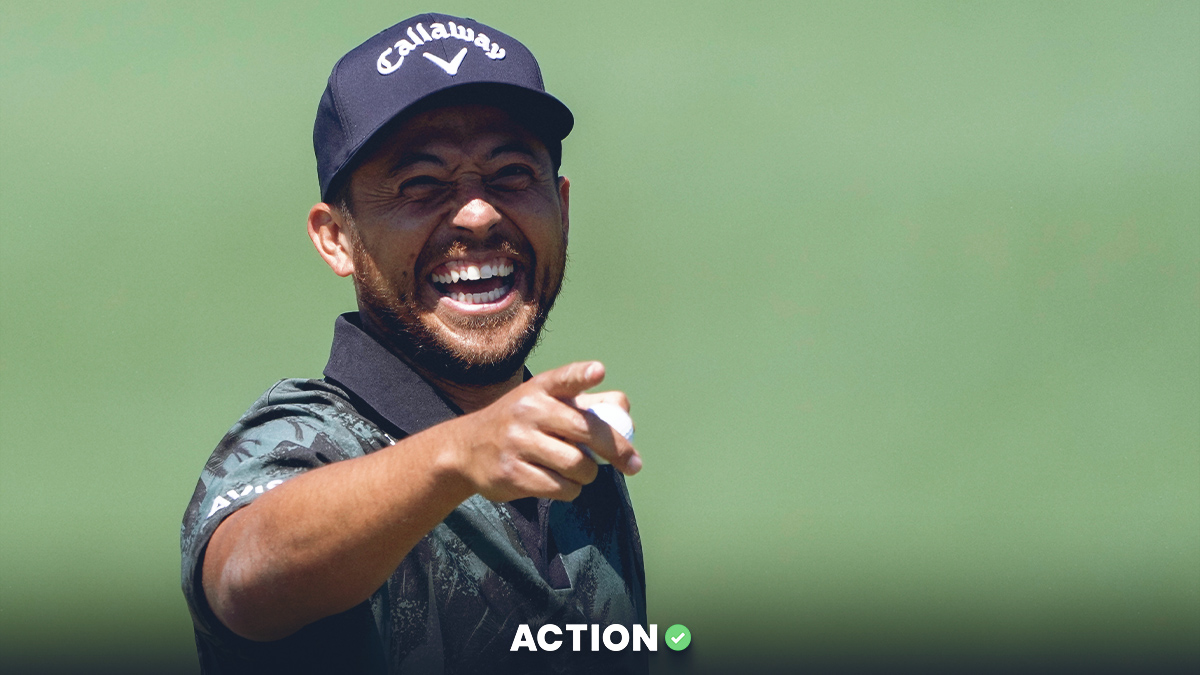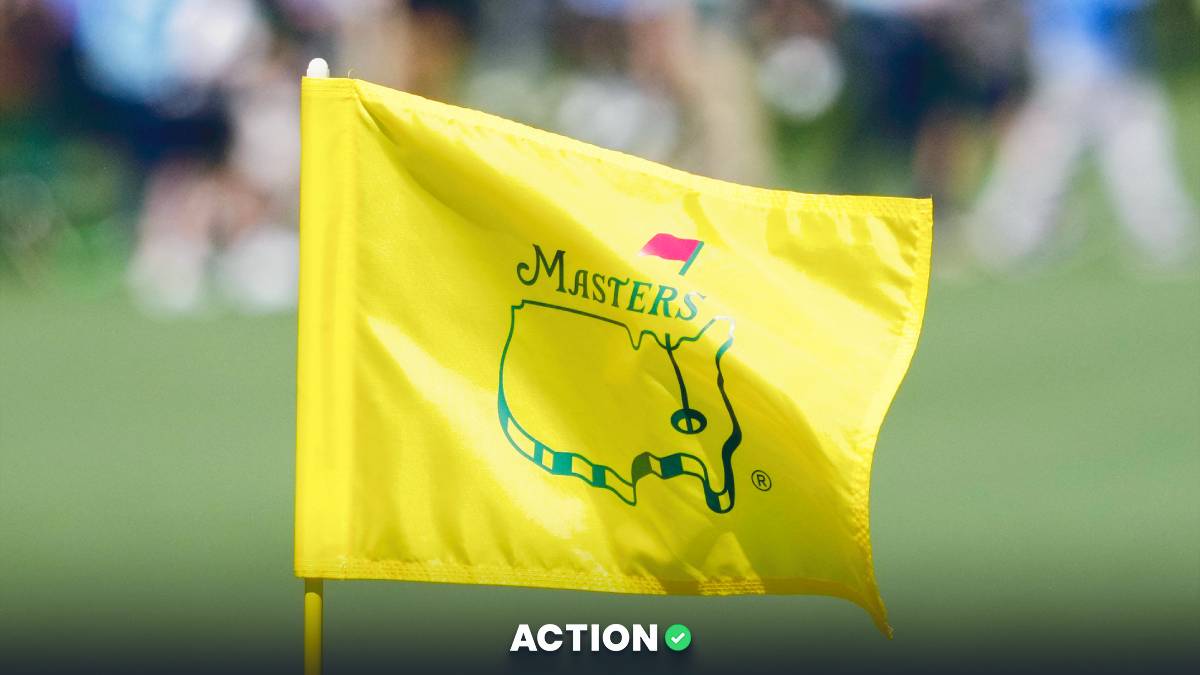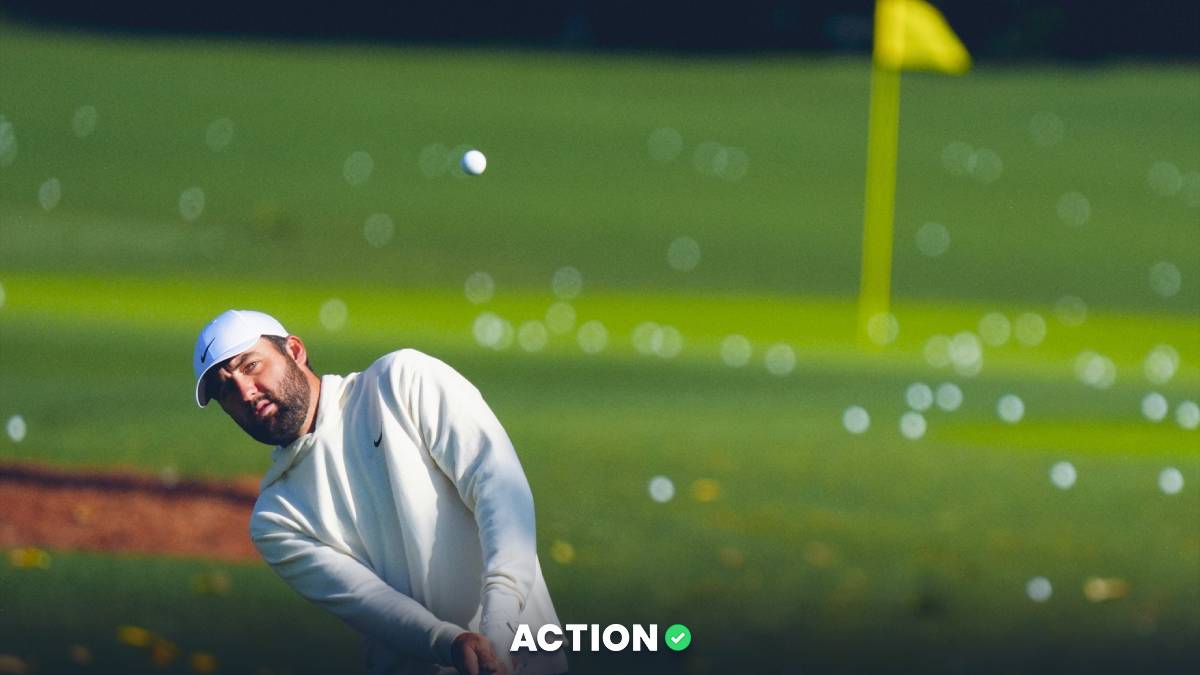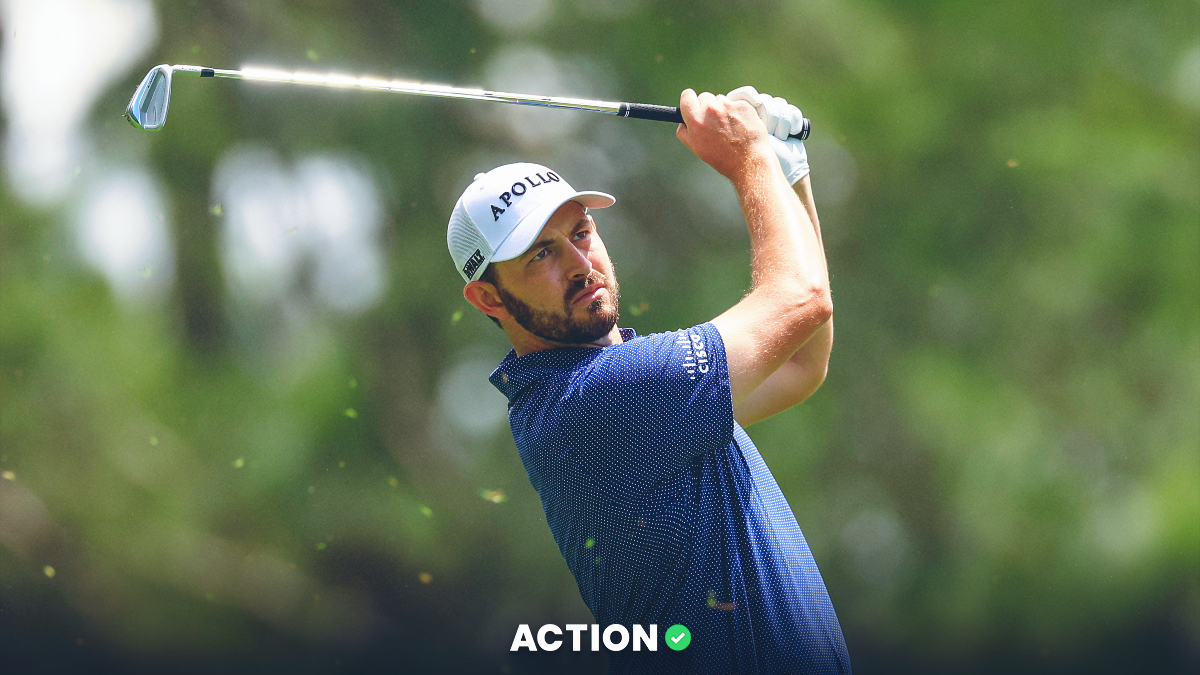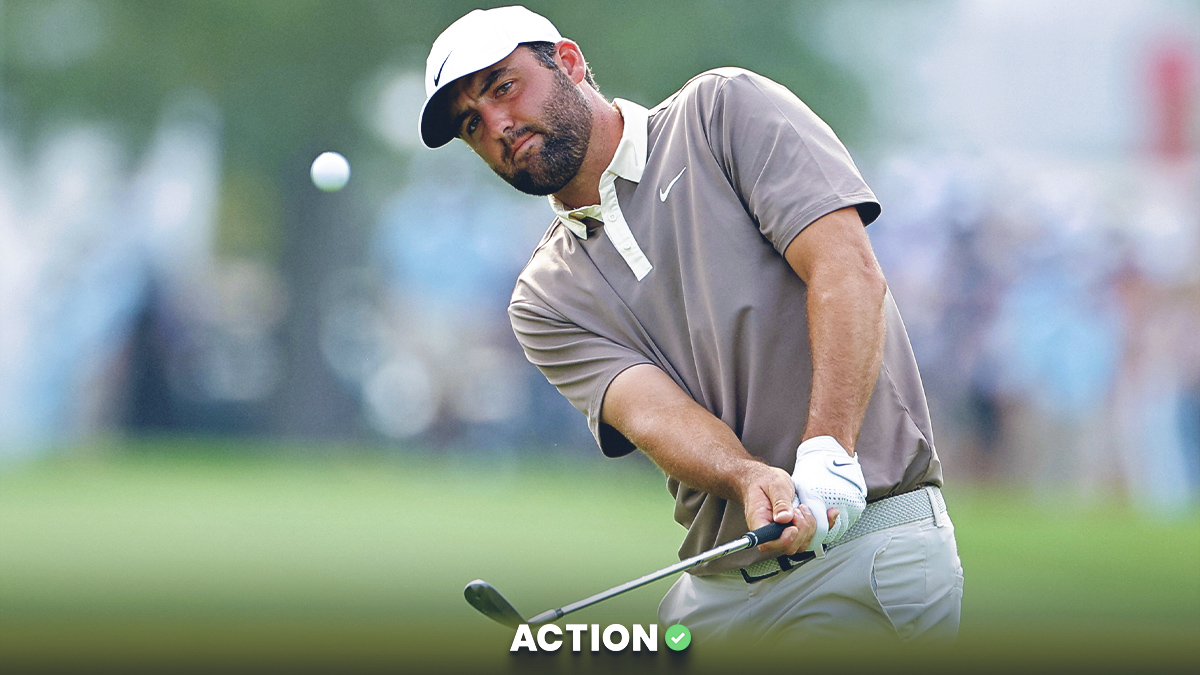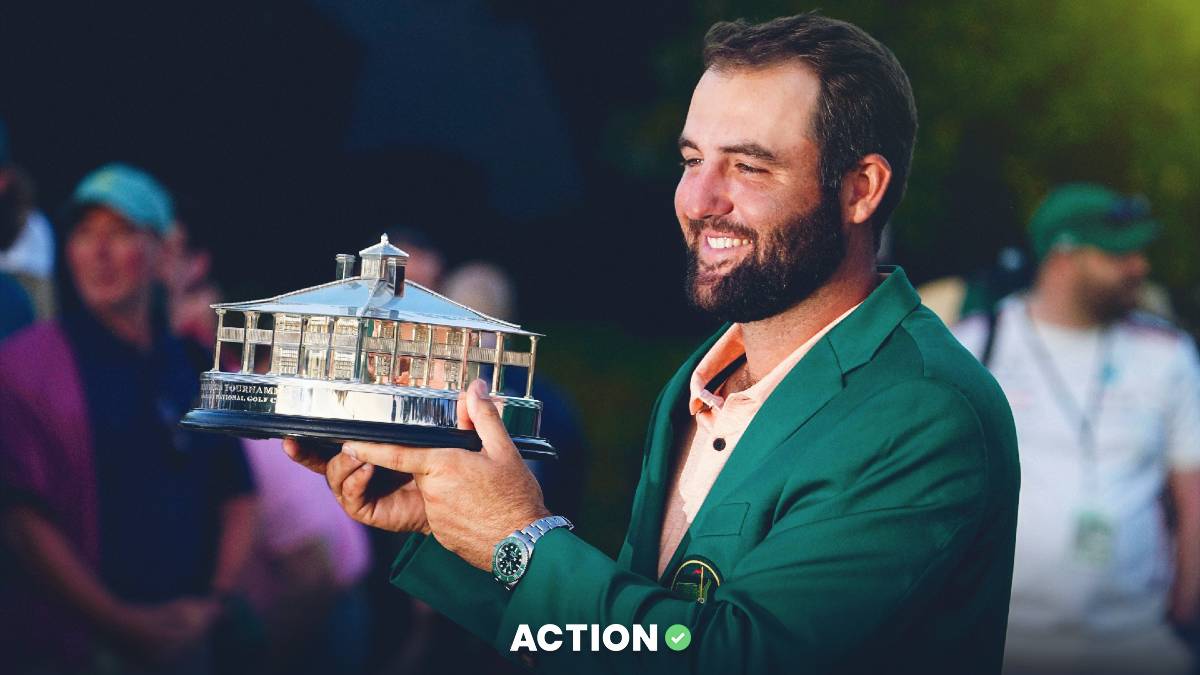AUGUSTA, Ga. – Last year, in what can only be considered yet another damning blow to the past-performance-is-the-greatest-indicator-of-future-results crowd, three of the four men’s major championships were claimed by players who’d never previously won any of 'em.
This was hardly some sort of outlier, either. The previous year, two first-timers won majors. The year before that, despite only three majors being held, another two were captured by those who’d never done it before.
Since 2015, we’ve witnessed at least one first-timer every year, as 20 of the last 31 majors have been won by these players.
In fact, going all the way back to 1981, there have been only two instances of all four being won by guys with major hardware already on the mantle. One was in 2000, when Tiger Woods claimed three of these tournaments himself; the other was in 2014, when Rory McIlroy took a couple, while Martin Kaymer and Bubba Watson each added a second.
All of which should help us come to this conspicuous conclusion: There’s a good chance somebody – or in all likelihood, multiple somebodies – is going to win his first major title this year.
On the eve of the first of these four championships, if we’re considering futures not just on the upcoming Masters Tournament but each of these events, we should know by now to never cross a name off our list simply because he hasn’t won a major already.
Included in the wide array of offerings currently available at SuperBook to win any major this year are exactly 80 players who have never done so previously, ranging from Xander Schauffele (+450) on the low end to Takumi Kanaya and Matti Schmid (each +25000) on the other side of it.
Before we get into which players own the most value, let’s examine the rationale for making these selections.
Click arrow to expand odds for first-time major winners in 2023, via SuperBook.
| Golfer | Odds |
|---|---|
| Xander Schauffele | +450 |
| Max Homa | +550 |
| Patrick Cantlay | +600 |
| Will Zalatoris | +600 |
| Tony Finau | +750 |
| Viktor Hovland | +800 |
| Cameron Young | +800 |
| Tyrrell Hatton | +1000 |
| Sungjae Im | +1000 |
| Tom Kim | +1000 |
| Sam Burns | +1200 |
| Joaquin Niemann | +1400 |
| Corey Conners | +2000 |
| Tommy Fleetwood | +2000 |
| Billy Horschel | +2500 |
| Min Woo Lee | +2500 |
| Sahith Theegala | +2500 |
| Abraham Ancer | +3000 |
| Aaron Wise | +3000 |
| Daniel Berger | +4000 |
| Rickie Fowler | +4000 |
| Talor Gooch | +4000 |
| Brian Harman | +4000 |
| Russell Henley | +4000 |
| Si Woo Kim | +4000 |
| Kurt Kitayama | +4000 |
| Keith Mitchell | +4000 |
| Taylor Montgomery | +4000 |
| Mito Pereira | +4000 |
| Thomas Pieters | +4000 |
| Seamus Power | +4000 |
| Paul Casey | +5000 |
| Cam Davis | +5000 |
| Harris English | +5000 |
| Ryan Fox | +5000 |
| K.H. Lee | +5000 |
| Robert MacIntyre | +5000 |
| Maverick McNealy | +5000 |
| Alex Noren | +5000 |
| J.T. Poston | +5000 |
| Scott Stallings | +5000 |
| Sepp Straka | +5000 |
| Harold Varner III | +5000 |
| Dean Burmester | +6000 |
| Christiaan Bezuidenhout | +6000 |
| Cameron Champ | +6000 |
| Tom Hoge | +6000 |
| Jason Kokrak | +6000 |
| Davis Riley | +6000 |
| Matthew Wolff | +6000 |
| Lucas Herbert | +8000 |
| Adrian Meronk | +8000 |
| Thomas Detry | +10000 |
| Emiliano Grillo | +10000 |
| Adam Hadwin | +10000 |
| Rasmus Hojgaard | +10000 |
| Matt Kuchar | +10000 |
| Marc Leishman | +10000 |
| Luke List | +10000 |
| Sebastian Munoz | +10000 |
| Kevin Na | +10000 |
| Aaron Rai | +10000 |
| Patrick Rodgers | +10000 |
| Cameron Tringale | +10000 |
| Erik van Rooyen | +10000 |
| Lee Westwood | +10000 |
| Adri Arnaus | +15000 |
| Joel Dahmen | +15000 |
| Mackenzie Hughes | +15000 |
| Kevin Kisner | +15000 |
| Thriston Lawrence | +15000 |
| Denny McCarthy | +15000 |
| Ian Poulter | +15000 |
| Alex Smalley | +15000 |
| Justin Suh | +15000 |
| Adam Svensson | +15000 |
| Brendon Todd | +15000 |
| Matt Wallace | +15000 |
| Takumi Kanaya | +25000 |
| Matti Schmid | +25000 |
You’ve gotta be in it to win it.
This is going to sound way too obvious, but let’s scream it from the rooftops anyway: If a player isn’t qualified for the majors, he probably isn’t going to win any of them.
Of course, this works from a pro-rated perspective, as well. I shouldn’t have to tell you that a player who competes in just two of the four majors has only half as much of a chance of winning.
Granted, this is an inexact science here in early April for the remaining three majors, as players still own a multitude of opportunities to qualify for the PGA Championship, U.S. Open and Open Championship. If I’m placing a futures bet today, though, I want some sense of a guarantee rather than crossing my fingers and hoping that a player advances through, say, U.S. Open sectional qualifying on his way to winning that title.
That’s what we call a long shot.
Case in point: You probably recall Marc Leishman coming close at a few majors. Among his half-dozen career top 10s is a playoff loss at St. Andrews in 2015 and a pair of tee times in the penultimate pairing on a Sunday afternoon at Augusta National.
However, after leaving the PGA Tour for LIV Golf last year, which means he’s failing to retain many Official World Golf Ranking points, Leishman is now outside of the top 100 with no real chance of qualifying for a major, other than playing his way into either of the Opens.
At 100/1, that might sound like a juicy number for a guy who’s gotten close, but it’s a clear fade if we’re paying attention.
First-time major winners aren’t usually first-time winners.
Of those 20 players in the previous eight years who claimed their initial major title, only two of them hadn’t already won a PGA Tour event – and even that statistic is a bit of a misnomer.
Those two players – congrats if you could name 'em right off the top of your head – were Danny Willett and Matt Fitzpatrick, each of whom counted his major triumph as a first victory in the United States, but was already a proven winner elsewhere in the world.
Willett owned four career wins on the DP World Tour prior to his 2016 Masters title, including one just two months earlier. Fitzpatrick was even more prolific, having grabbed seven trophies on his home circuit before winning last year’s U.S. Open.
To find a player who hadn’t previously prevailed on one of these high-level circuits, we have to go back two full decades to 2003, when Ben Curtis (Open Championship) and Shaun Micheel (PGA Championship) went back-to-back in that year’s final two majors.
The easy takeaway here is that it’s really difficult to win golf tournaments against the world’s best players and even more difficult to win a major when you’ve never done it before. Mito Pereira, who led on the 72nd tee box of last year’s PGA Championship, might serve as an example for those who believe it’s possible, but his final-hole double-bogey better encapsulates that aforementioned degree of difficulty.
As much as it pains me to say this, because these are a few players about whom I’m extremely bullish in both the long- and short-term future, Cameron Young (+800), Sahith Theegala (+2500) and Davis Riley (+6000) all probably need the experience of winning a tournament at the highest level before they can take the next step toward winning a major.
Call for the Four Corners offense.
I’ve always believed that what separates the most elite tier of players in the world from the next echelon is that the former can win anyplace, anytime. What I mean by this is that the best of the best are just as capable of winning on a ball-striker’s track with bumpy poa annua greens on the West Coast as they are on a devilish, wind-addled Florida venue with Bermuda grass or a 7,800-yard Northeast behemoth or a fast, firm links course in Scotland.
I’m again going to state an exceedingly obvious fact, but it only makes sense that we target players whose games aren’t suited for just one or two of the major championship venues.
There’s a reason why Schauffele (+450) owns the lowest odds to win a major of all those who haven’t done it before – and it’s only partially based on his immense talent level. His nine previous top 10s in majors – in just 22 starts! – are spread out across each of the four. That would be two at the Masters (both a top-three finish), one at the PGA, five at the U.S. Open, and one at The Open.
Perhaps these results suggest he’s more of a U.S. Open specialist, but at least he’s shown a propensity for playing well at each of these events.
On the other side of this ledger is the player with the second-lowest odds among the would-be first-timers: Max Homa (+550). Now, I won’t tolerate any Homa-related slander here, as he’s gone from 0-to-6 on the PGA Tour win odometer pretty quickly, but it’s tough to blindly back him when he’s competed in 13 career majors and finished better than 40th in just one of them – a T-13 at last year’s PGA.
Having contended at a major isn’t necessarily a prerequisite for winning one – and I know the entire world is backing Homa in his hometown of Los Angeles for the upcoming U.S. Open – but if I’m playing someone at such a short price, I’d like to know he’s at least performed well at a few of these tourneys in the past.
So … where’s the value?
There are 10 potential first-time major champions with odds to win one this year at 10/1 or shorter – an eclectic mix of superstars and up-and-comers that includes Schauffele (+450), Homa (+550), Patrick Cantlay (+600), Will Zalatoris (+600), Tony Finau (+750), Viktor Hovland (+800), Cameron Young (+800), Tyrrell Hatton (+1000), Sungjae Im (+1000) and Tom Kim (+1000).
We must limit our exposure from this range, which means some tough decisions, but the two at the top of my list are Cantlay and Finau.
Each one obviously checks off the first two aforementioned criteria, having qualified for all of the majors and with numerous previous wins on the PGA Tour.
Cantlay has been consistent if not extraordinary at these events, with a top 10 in three of them and four finishes of 21st or better at the other (U.S. Open). There’s no arguing his talent level, as he’s been a top-five player in the world not just based on the ranking’s algorithm, but through the ol’ eyeball test, as well. He also tends to have the right temperament to remain cool in the face of finally winning one of the big four, which nicely complements his top-50 ranking off the tee, on approach shots and putting.
Finau’s major championship resume is littered with strong finishes, as he owns multiple top 10s at every single one of them. Of course, this was largely his public persona for many years – that of a guy who was as gifted as anyone and repeatedly came close, but couldn’t close out tournaments. That’s since changed, with four victories in the past 20 months, and his ball-striking is better than ever, as the big hitter off the tee has gained strokes with his irons in 19 straight measured starts.
(For the record, if I allowed myself a third selection from this range, I think Im is extremely worthy of consideration, as he owns some previous Masters success and could be a solid course fit for next month’s PGA.)
Approach play is often a strong determinant of major success, so I don’t mind the pair of flushers at 20/1. It can be argued that both Corey Conners and Tommy Fleetwood coulda-shoulda-woulda won more often than they have, but it can be similarly argued that neither one can be crossed off any pre-tournament list based solely on such impressive ball-striking numbers.
Then there are a few names to consider at double or triple that number.
I’ll start with Si Woo Kim (+4000), who owns a higher weekly ceiling than most other players of similar status.
It was only nine years ago when Rickie Fowler (+4000) finished top five at all four majors, and while he breaks our rule of not being qualified for all four this year, the upside is certainly there.
Cam Davis (+5000) similarly isn’t in each of 'em and endured a dreadful start to the year while dealing with illness, but he remains underrated when healthy.
Robert MacIntyre (+5000) isn’t well known to most American fans, but he does own a pair of top 10s at The Open and a pair of top 25s at the Masters.
And if you can move from the cutline to third place at The Players Championship thanks to a weekend that included a tournament-record 62, you can do it anywhere, so don’t be surprised if Tom Hoge (+6000) gets himself into the mix at a major or two moving forward, with the PGA and U.S. Open being the most logical options.


